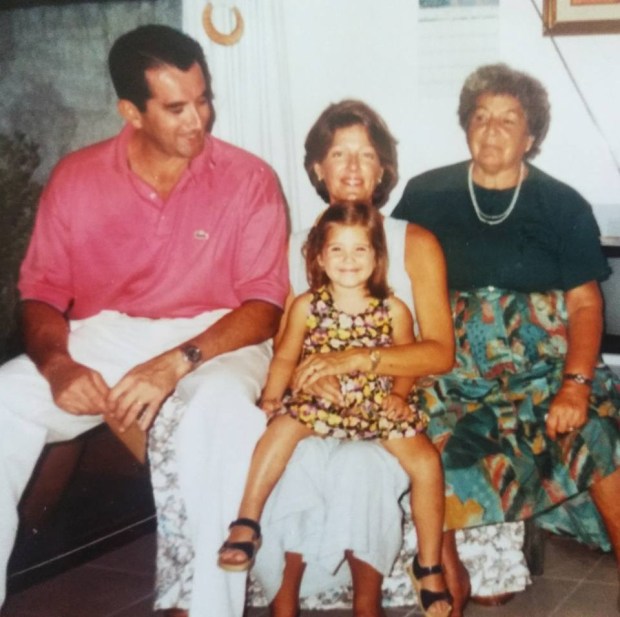Dear ñoqui,
I was 4 years old when we were introduced. Back then, I fit snugly on a corner of my abuela’s kitchen counter in her bright blue house on a quaint street in Rocha, Uruguay. I would make the simple process of combining potatoes with flour to form your luscious little dumplings a nightmare for my poor abuela. A sprinkling of flour on the counter became an explosion of the entire bag, flour covering every surface of the kitchen, including myself.
While I was clumsy, you were finicky, my darling ñoqui. You required a mastered mixture. Too much flour and you were too dense; too much liquid and you were too gummy. Adding egg to your gluttonous dough was a luxury my abuela couldn’t afford. But somehow she had a way of making you delightfully fluffy. I helped by rolling you across the flour-coated counter into long, thick snakes. My abuela chopped off inchlong chunky pieces of the snakes as they wiggled beneath my fingers.
Then came the tiresome part. Each ñoqui had to be hand rolled and stamped with a fork to create your raked markings. You see, we didn’t have one of those fancy wooden ñoquera boards with tracks to make your beautiful indentions. And this step couldn’t be skipped or you wouldn’t have the perfect crevices to capture tiny pools of sauce.
Rolling each voluptuous square of your dough across the fingers of a fork was torture for a hungry child. I mocked exhaustion after completing about a dozen smashed ñoqui. We painstakingly made hundreds of your plump potato knots, enough to feed at least 10 family members.
After you were rolled to succulent bite-size pieces, we dropped you, one by one, into a pot of boiling water. I kept an eye on you as you cooked, and although it took only two minutes, it felt like ages before you were done and floated to the top. Finally, we doused you in salsa tuco (tomato and meat sauce), salsa blanca (light cream sauce), or salsa filetto (seasoned tomato sauce) and consumed you with gusto.
We Uruguayans celebrate Dia de Ñoquis on the 29th of every month. If we don’t make you, we risk bad luck. My abuela was deeply superstitious. I don’t know anywhere else in the world that a day each month is dedicated to a food. You’re really something special.

Perhaps you’re wondering how you gained such adoration in a foreign land. We have the Italians to thank.
When Italians immigrated to Uruguay in the 19th century to work in agriculture, they often gathered for a shared meal on the 29th. Payday was typically the first of the month, so by the 29th, all that was left in many kitchen cupboards were dry, aging potatoes and bags of flour—the simple ingredients for your starchy goodness. The custom was for guests to leave a few pesos beneath their plates to thank the host.
My family doesn’t have a trace of Italian lineage—our roots are Spanish and Charruá, an indigenous group—but we celebrate Dia de Ñoquis religiously along with the rest of the country.
Over the years, the tradition has transformed into a lighthearted superstition. Uruguayans believe eating you on the 29th and leaving change underneath their plates will bring good fortune. On Dia de Ñoquis, restaurants nationwide serve traditional ñoqui de papa (potato gnocchi) and other renditions topped with spinach, cheese, burned sage, or pesto. Some even stuff you with ham and cheese.
Decades after the era of countertop flour fiascos with my abuela, I do my darndest to consume you on your rightful day each month, even when I’m not in Uruguay. I’ve left servers at Italian restaurants in India and Thailand puzzled when they clear my plate and find coins lovingly tucked beneath. But no version of you is quite as delightful as the melt-in-your-mouth ñoquis my abuela used to make. Not even in Italy was her divine rendition bested.
If I happen to miss a plate of you on the 29th, I blame any financial struggles the following month on my failure to consume you, my beloved comfort food.
Con amor,
Lola